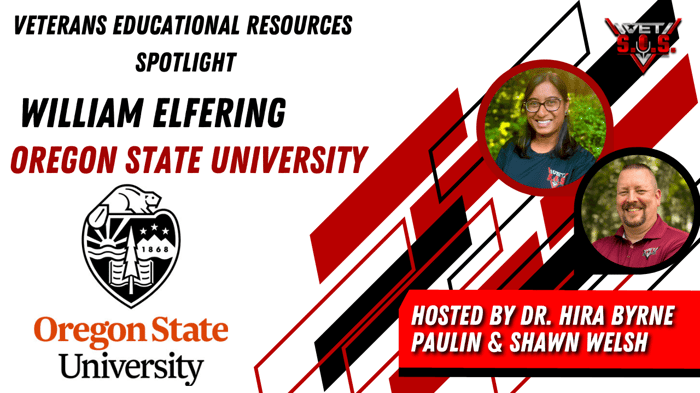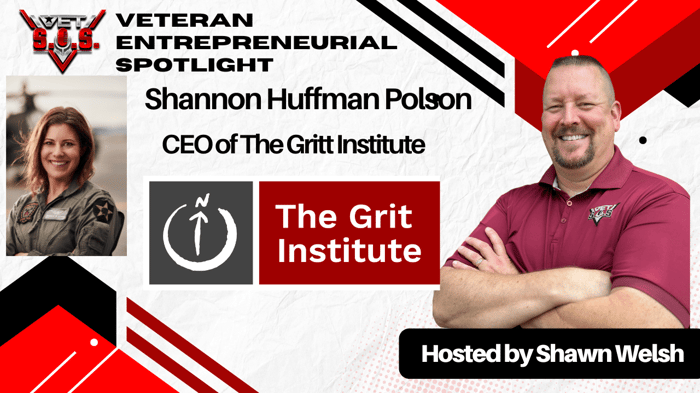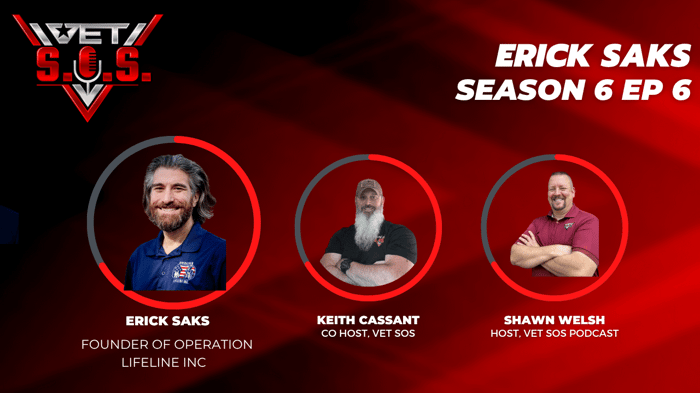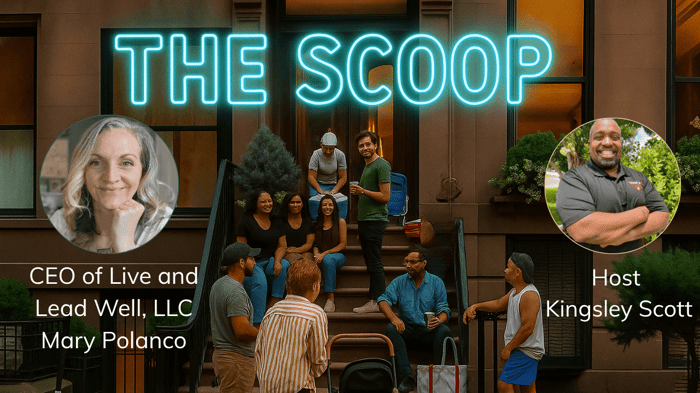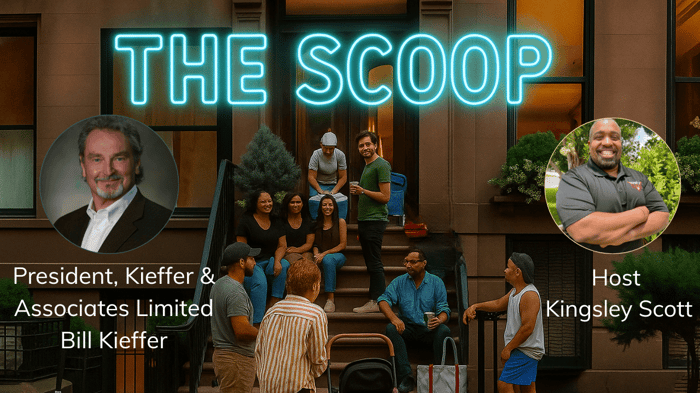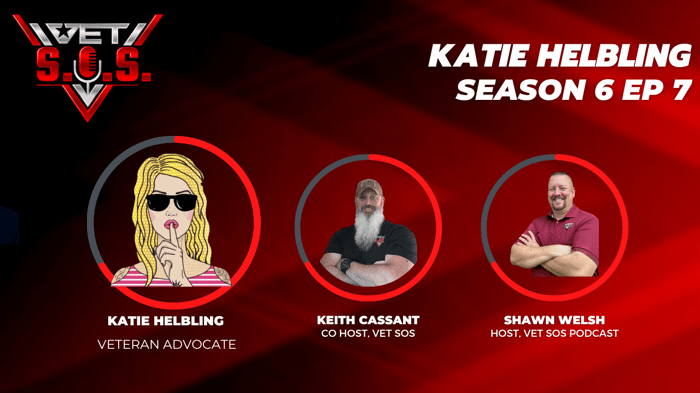Championing Veteran Support in Higher Education: Oregon State University’s Holcomb Center
Veteran support in higher education is more than a concept—it’s a commitment. For military-connected students, transitioning to college life after years of structured service can be overwhelming. Academic jargon, administrative requirements, and social adaptation can make universities feel like unfamiliar terrain. But some institutions are stepping up to meet these unique needs with empathy, clarity, and structure. One of the most notable examples is Oregon State University (OSU), where the Holcomb Center for Military and Veteran Resources is redefining how veteran support in higher education should look and feel.
This initiative is guided by William Elfering, Director of the Holcomb Center and a retired Command Sergeant Major who served more than 22 years in the Oregon Army National Guard. In a recent episode of the VET S.O.S. Veteran Educational Resources Spotlight, Elfering shared powerful insights into how Oregon State fosters a community-first approach to supporting veterans and their families in higher education.
A Veteran’s Journey Back to Campus
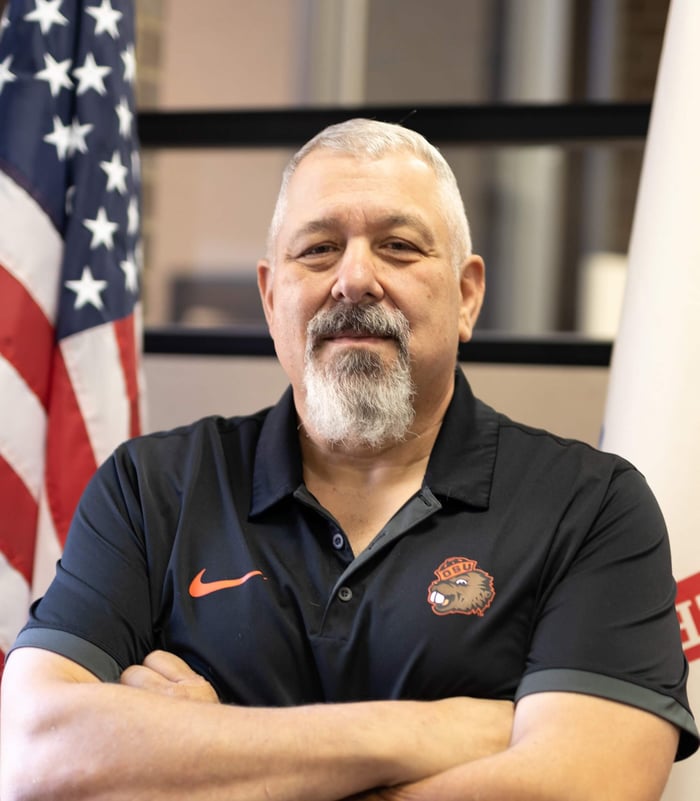 William Elfering
William Elfering
William Elfering’s transition from military service to civilian life was not instantaneous. After retiring from the National Guard—with deployments to Iraq and Afghanistan—he navigated several roles before finding his way back to Oregon State, where his own post-high school journey began. What started as a return to familiar ground quickly turned into a mission: building a comprehensive support network for veterans entering the world of higher education.
Elfering’s experience gives him a unique perspective. He understands firsthand that veteran support in higher education goes far beyond classroom assistance. It involves cultural navigation, emotional support, and logistical help with things like benefit certifications and student services.
Building the Holcomb Center: A Model for Veteran Support
 When Elfering began working at OSU, he had a desk in a cubicle outside the dean’s office. Over the past decade, that small start has grown into the Holcomb Center, a 4,000-square-foot facility purpose-built for military-connected students. This space offers:
When Elfering began working at OSU, he had a desk in a cubicle outside the dean’s office. Over the past decade, that small start has grown into the Holcomb Center, a 4,000-square-foot facility purpose-built for military-connected students. This space offers:
Study rooms and collaboration tables
Computer access and printing resources
A kitchenette for socializing and meal prep
An AV suite for hybrid learning and content creation
Peer support programs, including PAVE (Peer Advisors for Veteran Education)
By designing the center to be both functional and welcoming, Oregon State ensures its veterans have a place to gather, work, and connect. This is the physical embodiment of their philosophy on veteran support in higher education—one built on connection, accessibility, and empowerment.
Navigating Higher Ed: Helping Veterans Find Their Footing
One of the most critical challenges for veterans entering college is understanding how to navigate a completely new system. Military life is highly structured, while higher education can seem chaotic in comparison. At OSU, Elfering and his team help bridge that gap.
“We connect with most of our student veterans before they even get to campus,” Elfering explained. “And when they do arrive, we bring them into the center during orientation so they know where to go and who to talk to.”
This preemptive engagement plays a vital role in easing transitions. By offering personalized guidance early on, Oregon State ensures students feel supported from day one—demonstrating what true veteran support in higher education should look like.
Diversity and Inclusion: Peer Coordinators for Underrepresented Veterans
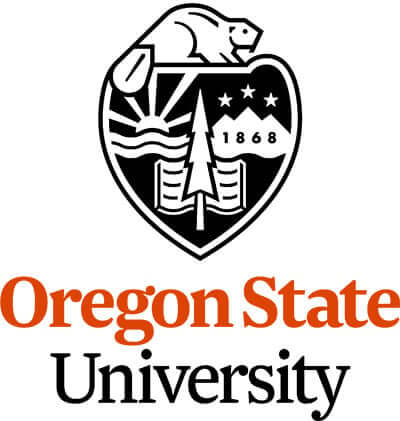 Oregon State understands that no two veterans are alike. The diversity within the veteran community means that a one-size-fits-all approach is ineffective. That’s why OSU has created peer coordinator roles specifically for underrepresented groups, including:
Oregon State understands that no two veterans are alike. The diversity within the veteran community means that a one-size-fits-all approach is ineffective. That’s why OSU has created peer coordinator roles specifically for underrepresented groups, including:
Women veterans
LGBTQ+ veterans
Culturally diverse student veterans
These coordinators not only connect veterans to resources but also foster deeper integration with OSU’s cultural centers. This intentional inclusion is a hallmark of veteran support in higher education done right. It recognizes the layered identities of student veterans and ensures that every student feels seen, respected, and heard.
Events That Build Veteran Community
A crucial component of OSU’s model is community engagement through on-campus events. From casual socials to major ceremonies, the Holcomb Center organizes activities that bring military-connected students together. These include:
Quarterly welcome/farewell socials
Veterans Appreciation Football Game (in collaboration with OSU Athletics and Alumni Association)
Black History Month and Women’s History Month events
Veterans Week programming and resource fairs
These events serve dual purposes. First, they build a sense of belonging among veterans. Second, they help educate the broader student body and faculty on the contributions and experiences of veterans.
Simplifying the Process: Streamlined Benefits Certification
Another major pain point for student veterans at many institutions is the cumbersome process of benefit certification. At OSU, the Holcomb Center eliminates unnecessary barriers. Unlike other universities that require students to resubmit course lists every term, Oregon State automatically processes certifications once students register for classes.
This small administrative change makes a huge difference, reinforcing the university’s dedication to simplifying veteran support in higher education.
Mental Health and Wellness: Proactive, Peer-Led Support
Mental health is a top concern for many veterans. Recognizing this, OSU added a dedicated Mental Health and Wellness Coordinator for its military-connected community. What makes this role special is the person in it: a former student veteran who came up through the Holcomb Center’s programs.
Recent initiatives have included:
Veteran wellness groups
A spring break mental health retreat
On-campus support circles focused on peer encouragement
By embedding mental health into its veteran services, OSU is addressing the full spectrum of student needs. This holistic approach is essential to any effective veteran support in higher education model.
Beyond the Classroom: Connecting to Community Resources
Veteran support doesn’t end when the semester does. Oregon State actively works with local organizations—including VFW posts, American Legion chapters, and county veteran service officers—to ensure its students are aware of and connected to community resources.
The university also brings these providers onto campus for resource fairs and information sessions. This model helps students build habits of accessing support, making them more likely to seek help after graduation.
Educating Veterans on Benefits: Disability and VR&E
Two of Elfering’s biggest “soapboxes” are VA disability claims and Veteran Readiness and Employment (VR&E). Too many students arrive on campus unaware of the benefits available to them. Oregon State makes it a priority to educate students on:
Filing for disability compensation
Navigating VR&E for career counseling, tuition, and training
Educating veterans on their entitlements is one of the most actionable aspects of veteran support in higher education. It empowers them to take charge of their education and future.
Accessing OSU’s Veteran Services
For those interested in learning more or getting connected with Oregon State’s services, the process is simple:
🌐 Visit veterans.oregonstate.edu
📱 Follow the OSU veteran community on Facebook and Instagram
📧 Use the online contact form for personalized support
Everything is designed to be intuitive and helpful—another reflection of Oregon State’s commitment to leading the charge in veteran support in higher education.
Final Thoughts: Raising the Bar for Veteran Support in Higher Education
Oregon State University is doing what many institutions aim to do but struggle to execute: creating a truly inclusive, supportive, and resource-rich environment for student veterans. From wellness programs and streamlined certifications to cultural representation and peer support, the university’s approach to veteran support in higher education is a model worth emulating.
For veterans seeking a university that understands their journey—and has built the infrastructure to support it—Oregon State University stands as a beacon of what’s possible when intention meets execution.
